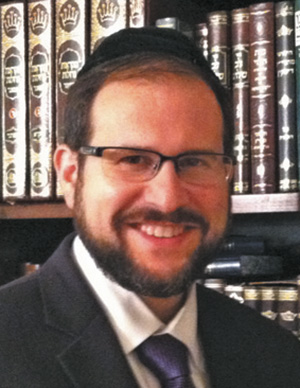

Last Shabbos, the president of our shul, R’ Yossi Goldman, reminded the kehilla that Sunday evening would be December 4, and we would begin reciting V’Tein Tal Umatar in the ma’ariv Shemoneh Esrei.
As R’ Yossi made the announcement, I noticed two Israeli guests who were visiting for Shabbos look at each other and snicker. In Eretz Yisrael they began saying V’tein Tal Umatar shortly after Sukkot, on the 7th of Cheshvan. They therefore found it comical that we in chutz l’aretz were only beginning to recite it now.
It reminded me of a conversation I had with a friend a few years ago. When I mentioned to him that we were beginning to say Tal Umatar that night, he rolled his eyes and said, “Here we go again.” When I asked him what the big deal was, he replied that from the summer on, he felt like he was always having to repeat Shemoneh Esrei. For the first 10 days of the year (from Rosh Hashanah to Yom Kippur), he often forgot to say Hamelech HaKadosh, so he had to repeat Shemoneh Esrei. Throughout Sukkot, half the time he forgot Ya’aleh V’yavo and had to repeat Shemoneh Esrei. Then, after Sukkot was over, he had to contend with remembering to say Mashiv Haruach. He usually forgot a bunch of times during the first few weeks, necessitating his repeating Shemoneh Esrei. When he finally got used to saying Mashiv Haruach, and “prayer life” seemed to return to normal, December 4 came around, and with it a whole new period of forgetting Tal Umatar and having to repeat Shemoneh Esrei.
He looked at me with frustration and asked, “Why couldn’t the Sages have mercy, and just keep the whole Shemoneh Esrei uniform throughout the year?” I replied that although each insertion had its own reason based on the time of the year, perhaps the Sages also wanted to ensure that we don’t daven Shemoneh Esrei on autopilot. Perhaps they felt it would be a side benefit to compel us to be more vigilant as we davened and have to pay attention to what we are saying.
Rav Shimshon Pinkus, zt”l (Tiferes Torah—Toldos), notes that in regards to human interactions, persistent requests are viewed as vexing and irksome. If a person asks another for something on a few occasions and was rejected, continuing to ask is rude, to say the least. Just ask any parent who has whining children. (I wouldn’t know; I heard about this from friends.)
In regard to prayer and davening to Hashem, however, it is altogether different. Although we repeat the same words of prayer every single day—in fact, three times a day—Hashem never tires of hearing them. In fact, the opposite is true, for the whole purpose of prayer is to connect ourselves with Hashem through communicating with Him. There is no greater nachat that He has than when we turn to Him in sincere prayer and supplication.
Does a spouse ever tire of hearing a sincere and meaningful compliment? Do parents ever tire of hearing their children tell them that they love them? That is how Hashem views our tefillot.
Therefore, it behooves us to ensure that our prayers are not recited emotionlessly and callously. True, we might not know what many of the words mean. But if we pray with an underlying sentiment that we want to connect with Hashem, that is more precious before Him than anything else.
We need to remind ourselves that He never tires of hearing it, so that we will never tire of saying it—with vitality and love.
That is part of the essence of Chanukah—to revitalize our spiritual selves, to serve Hashem with love and excitement. The Maccabees’ legacy was that they risked their lives to serve God on the highest level and wouldn’t accept “second-class service.” It’s that love that we kindle atop our menorahs every year. Bayamim hahem bazman hazeh!
Happy Chanukah!
By Rabbi Dani Staum LMSW
Rabbi Dani Staum, LMSW, is the rabbi of Kehillat New Hempstead as well as guidance counselor and seventh-grade rebbe in ASHAR, principal at Mesivta Ohr Naftoli of New Windsor and a division head at Camp Dora Golding. He also presents parenting classes based on the acclaimed Love and Logic methods. His email address is: stamtorah@gmail.com. His website is: www.stamtorah.info.










